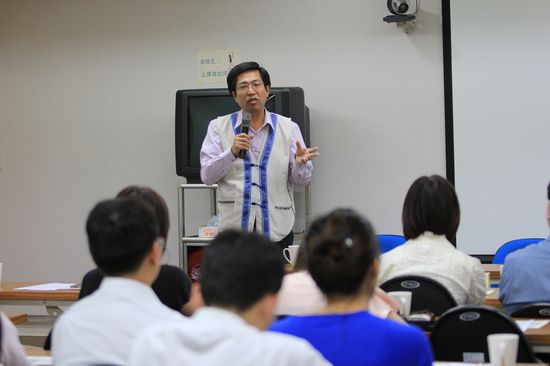


Diplomatic and Consular Personnel Praise Reconstruction Council for Reconstruction Model that is Exemplary in International Community

On June 30th, 42 diplomatic and consular personnel and members of the Overseas Compatriot Affairs Commission paid a visit to the Executive Yuan's Morakot Post-Disaster Reconstruction Council. They were received by Deputy CEO Dr. Chern Jenn-Chuan, while Director of the General Planning Department, Chang Heng-yuh, provided a briefing on current reconstruction progress and results. He delivered information regarding the damaged caused by Typhoon Morakot and the progress of related disaster relief and reconstruction efforts. Firstly, the Deputy Director General of the Foreign Service Institute, Phoebe Yeh, commended the government’s achievements in post-disaster reconstruction, encouraging consular personnel stationed overseas to provide this governmental mode of reconstruction to countries in need, while also introducing Taiwan’s progress in post-disaster reconstruction to the countries of their station. This will ensure that the local public gains further understanding of Taiwanese reconstruction efforts and also enhance the international visibility of post-disaster reconstruction efforts for Typhoon Morakot.
During his dedication, Deputy CEO Dr. Chern especially emphasized that the ROC government established the Reconstruction Council within 7 days of the Morakot disaster, as stipulated in the Disaster Prevention and Protection Act. The Legislative Yuan passed a Special Act within 20 days, and approved the special budget within 94 days. Construction of 611 permanent housing units were completed by the 6 month mark of reconstruction efforts, while 3,058 permanent housing units were completed by the 2nd year anniversary. The government has integrated the concept of a colorful sustainable community into an innovative reconstruction model to assist in the establishment of basic life functionality within new communities and public facilities. This serves as an exemplary display of post- disaster reconstruction efforts for the international community, as it reinstates a tribal environment while retaining cultural significance and building a sustainable concept of autonomous development within the future communities.
During the briefing, Director Chang pointed out that in the example of Typhoon Morakot, 23 million Taiwanese people donated approximately NT$ 25.1 billion. NT$6.02 billion was also donated towards this year’s March 11th Earthquake in Japan. The Taiwanese people also donated roughly NT$ 5.7 billion to victims of the Sichuan Earthquake in 2008, demonstrating the immense extent of kindness amongst the Taiwanese people. As the government began cooperating with private groups and various NGOs in disaster relief and reconstruction effort in the wake of Typhoon Morakot, it clearly demonstrated the soft power of Taiwanese people.
During the discussion session, Deputy CEO Dr. Chern also made comparisons between reconstruction efforts after the occurrence of two major disasters in Taiwan: Typhone Morakot and the 921 Jiji Earthquake. He also cited examples of recent post-disaster reconstruction efforts around the world, such as in Japan, New Zealand, Haiti, and after Hurricane Katrina. In post-disaster reconstruction for countries such as the US and New Zealand, the government is only responsible for temporary accommodation of disaster victims and reconstruction of public facilities. Long term resettlement is still dependent on the insurance system. As for reconstruction of communities, progress can be slow due to the differing pace of residents. This is the reason that many disadvantaged groups have still not been resettled properly nor their homes rebuilt. In contrast, it is easy to see the foresight of Taiwan constructing permanent housing. Reconstruction efforts after Typhoon Morakot were conducted in this manner: the government simplified construction management proceedings, provided land, became responsible for major public facilities, while private NGOs provided support in the form of constructing permanent housing for disaster victims. The land remains state-owned, while the disaster victims are gifted with permanent housing that can be inherited but not rented out or sold. These truly innovative breakthroughs inspired enthusiastic questions and support during the discussion session. The visit came to a successful conclusion amidst an abundance of mutual encouragements.

Photo 1: Deputy CEO Dr. Chern Jenn-Chuan of the Reconstruction Council conducts discussion session with guests

Photo 2: Eager questions from diplomatic and consular personnel/p>

Photo 3: Eager questions from diplomatic and consular personnel






